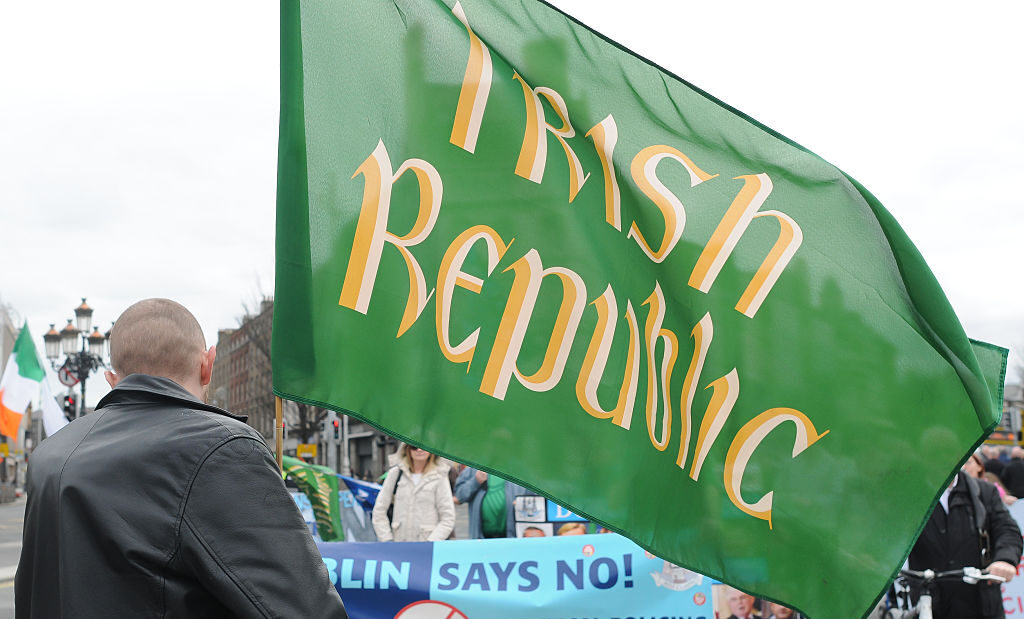In a recent interview, a senior economic adviser to Irish Taoiseach Simon Harris said that an exodus of Big Tech companies from Ireland could “wipe out” the country’s economy and eclipse the impact of the 2008 banking crash.
Stephen Kinsella, a university professor turned Government adviser, issued the stark warning as jitters emerged about Ireland’s place as the world’s Big Tech capital. Citing the consequences of Dell’s exit from the Irish county of Limerick in 2009 — in which 4,000 jobs were lost overnight — Kinsella highlighted that Apple has 6,000 staff in County Cork alone, and that if it were to jump ship all those jobs would go too.
Aside from the employment implications, the Irish state’s coffers would also be heavily impacted. “Apple, Microsoft and Pfizer probably pay something like 60% of all corporation taxes in Ireland. That’s a huge amount of money,” Kinsella claimed. “So to lose the top three biggest… basically wipes us out.”
He also provided an incisive analogy: if the Irish Government were a company, over 20% of sales would come from large US multinational corporations. As such, if the US pharmaceutical and technology sectors are not doing well then Ireland naturally follows suit.
This scenario may become a reality in the not-too-distant future as Pillar 2 — the OECD’s landmark global tax harmonisation deal — is set to be implemented later this year. With that, Ireland’s corporate tax rate will increase from the current low rate of 12.5% to 15% on all companies with an annual turnover of €750 million, potentially ending the country’s competitive edge as a tax haven.
Ireland was instrumental in this arrangement getting over the finishing line after securing a commitment to remove the term “at least” from the original text to prevent future corporate tax increases further down the line. But while 99% of companies operating in Ireland will continue to pay the 12.5% rate, around 1,600 multinationals — mainly US firms — will fall under the new harmonised figure.
The figure may appear small but the implications are huge. Currently, just 10 multinationals pay 57% of Irish corporate taxes. All these companies are US pharmaceutical and/or tech firms. While the US accounts for 21% of all FDI investment in Europe, this figure increases to 59% in Ireland. This has meant that the interdependence between America and Ireland has reached astronomical levels in recent years.
After posting an impressive 26% GDP rise in 2016, the US economist Paul Krugman called out what he saw as “leprechaun economics”, with the storing of Apple’s intellectual property in the Emerald Isle heavily distorting the country’s real growth figures. Since then, certain loopholes have been shut — including the Double Irish with a Dutch Sandwich (a tax avoidance technique used by big firms) — but Ireland’s reliance on foreign inputs has remained the same, if not accelerated.
As a result, despite being a small country with a population of just over five million, the Republic has on paper punched above its economic weight: in 2022 its GDP growth averaged over 12% compared to the EU’s 3%. In many ways, Ireland has struck gold but at the same time has been infected with the Dutch disease: its employment, tax take and prosperity are heavily reliant on continued FDI.
Over 900 US companies directly employ 209,000 people, with a further 167,000 indirectly employed, representing 15% of the domestic workforce. This means that Ireland’s tax base is extremely narrow, with the top 25% of earners paying 80% of income taxes. Within that figure, employees in foreign-owned multinational companies, mostly American, account for one-third of income tax receipts representing 39% of Ireland’s total tax take.
These figures are eerily similar to those during the previous Dutch disease when Ireland’s economy was heavily reliant on housing to fuel the economy. During the “Celtic Tiger” period, total tax intake related to property was 15% while construction accounted for 20% of total employment. When that bubble burst, Ireland required a €67 billion bailout from the Troika of the International Monetary Fund, the European Central Bank and the European Commission.
While Ireland may lose its competitive edge via a low corporate tax rate, it still retains its status as the only English-speaking country in the EU with a highly educated workforce. However, the OECD agreement combined with persistent issues related to housing costs, vulnerability as a net importer of energy, and increased political polarisation resulting in calls for more tech regulation could spell the death knell for Ireland’s unorthodox method of economic growth.
Leprechaun economics isn’t going anywhere anytime soon. Yet Ireland could, at some point, find that there was never any pot of gold at the end of the rainbow.











Join the discussion
Join like minded readers that support our journalism by becoming a paid subscriber
To join the discussion in the comments, become a paid subscriber.
Join like minded readers that support our journalism, read unlimited articles and enjoy other subscriber-only benefits.
Subscribe